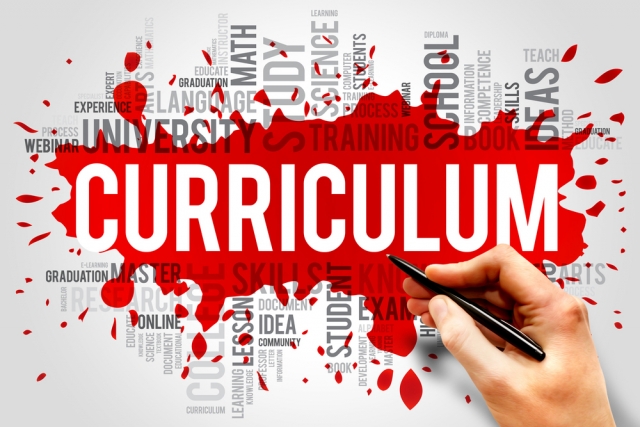Questions to help you review your KS3 curriculum
Guidance for history teachers

|
This resource is free to everyone. For access to our library of high-quality secondary history materials along with free or discounted CPD and membership of a thriving community of history teachers and subject leaders, join the Historical Association today |
With Ofsted incorporating curriculum into inspections from September 2019 and finally with some time off from GCSE and A-Level change many departments are beginning the process of reviewing their KS3 curriculums.
Rather than answers, this resource provides some questions that you and your department probably want to sit down and discuss. This should help clarify your vision and refocus your curriculum. It is split into three sections: intent, implementation and impact. These are the three areas Ofsted will focus on but they are also highly sensible.
We believe it is essential to begin with what you want students to learn about the past and work out a way to assess this as a secondary process. We also strongly believe that the curriculum should be the progression model, i.e. the learning should get more challenging across the Key Stage – not the students getting better at the same type of assessment as they get older.
Intent:
- What do you want your students in your school to know by the end of KS3? Why is this important?
- What are the topics that are fundamental for your students to know? Why are they so important?
- What are the topics that you will leave out of your curriculum? Why are they not important enough to include?
- What disciplinary knowledge (second order concepts) should students develop in each year? Why is this important?
- What substantive knowledge (first order concepts) should students develop in each year? Which concepts will they need to understand to make the most of GCSE and A-level?
- Are you being as ambitious as you can be for your students? Is there sufficient challenge in the curriculum you are setting?
- Does your curriculum reflect the diversity of your student body? Are there too many ‘great men’ making up your curriculum?
- Do all your team share a clear vision for the history curriculum? Are they all able to articulate this if asked? Do the students know this vision?
- How does your curriculum build towards GCSE and A-Level? (it should build towards this but not be constrained by it)
- Is there the correct balance of local, national and international history in your curriculum?
Implementation:
- How many lessons do you have per year? How will you split this between the topics you have chosen? Should all topics have equal attention?
- Are smaller or longer units more beneficial?
- How are you framing your topics? Are you using the right enquiry questions?
- Are your topics / enquiry questions grounded in and reflecting the recent scholarship of historians?
- Will you structure units chronologically or will you look at a more thematic approach?
- How are you building on KS2 knowledge in Year 7? How are you building on Year 7 knowledge in Year 8?
- Have you built in concepts that can be returned to time and time again? e.g. empire, authority
- Does the sequence of units or the sequence of lessons make sense? Will students have sufficient background knowledge from previous units or lessons to undertake the next?
- How are you avoiding a ‘one thing after another’ syndrome? Are you using any ‘scale switching’ (e.g. from breadth to depth) to stitch particular enquiries together?
- How can you build a sense of different time periods?
- Are there questions that underpin the entire curriculum (e.g. What are people’s beliefs?) that could be returned to time and time again?
- Should you build in pauses in the curriculum for reflection and to return to the chronology?
- Should you build in time for staff to explore areas of the agreed curriculum that particularly interest them or a particular students?
- Is the core knowledge you expect to see covered in lessons explicit to staff, students and parents?
- Is there a list of key academic vocabulary that should be used in lessons?
- How will you use homework to ensure students meet your curriculum intention?
Impact:
- How will you know your students have met your curriculum intention?
- Is you assessment designed for your curriculum rather than being constrained by GCSE assessment models designed for 16 year olds?
- How much assessment is enough for the students to get sufficient feedback to improve their work but not increase your staff workload?
- Does your assessment system test if students are building knowledge across a term, a year or the key stage?
- How are you explicitly testing students substantive and disciplinary knowledge?
- Are you utilising cognitive science techniques of regular recall and interleaving when you build students memory?
Further reading/listening:
- Teaching History article by Rich Kennett and Alex Ford concerned with rich knowledge without factual overload.
- Blog post by Michael Fordham about the curriculum as the progression model (Michael Fordham's Clio Et Cetera blog)
- Rich Kennett gave the keynote address at the HA’s Yorkshire History Forum in November 2019. This was filmed and is available to watch for HA members here.
- Part of a very important blog series from Christine Counsell (One Big History Department blog) where she addresses the questions that SLT should be asking middle managers - and therefore the questions they should be prepared to ask themselves about curriculum.
This article originally appeared in the One Big History Department blog
Links:
- Responding to the latest Ofsted Consultation: Education inspection framework 2019
- Redesigning the curriculum - a short guide for the new, novice or nervous
- How diverse is your history curriculum?
- Film: Making an effective history curriculum (secondary)
- Film: Making an effective history curriculum (primary)

